detail profile lucy tulugarjuk
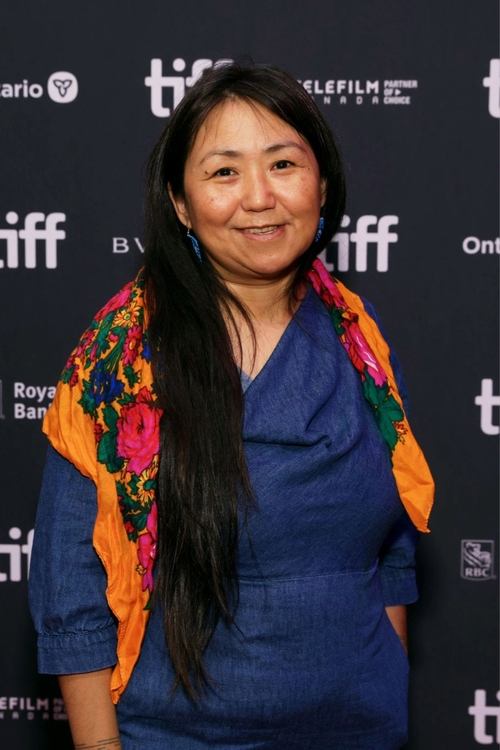
Riwayat Hidup
Lucy Tulugarjuk (born February 28, 1975) is an Inuk actress, throat singer, and director.
She is the executive director of the Nunavut Independent Television Network.
Tulugarjuk is from Igloolik, Nunavut.
Tulugarjuk is known for starring in the 2001 film Atanarjuat: The Fast Runner, for which she won the award for Best Actress at the American Indian Film Festival.
In 2015, she acted in the film Maliglutit.
In 2017, she directed her first feature-length film, Tia and Piujuq (Inuktitut: ᑏᐊ ᐊᒻᒪᓗ ᐱᐅᔪᖅ).
The film featured Marie-Hélène Cousineau as producer and Tulugarjuk's daughter in the lead role as Piujuq.
With Carol Kunnuk, she was co-director, co-writer and co-star of Tautuktavuk (What We See), which premiered at the Toronto International Film Festival in 2023 and won the Amplify Voices Award for Best First Film.
She performs as a throat singer, but in 2014, declined to perform for Nunavut MP Leona Aglukkaq in protest of the government's seismic testing.
That year, she wore seal skin at the Gone Wild show in Fort Smith, Northwest Territories, to support Inuit culture.
In 2016, she also called for the resignation of Aglukkaq's successor as MP, Hunter Tootoo.
She is the executive director for Nunavut Independent Television Network, a service of Isumabased in Igloolik.
In 2021, Isuma launched Uvagut TV, a 24/7 online channel devoted to Inuktitut language programming, for which Tulugarjuk is the managing director.
Tulugarjuk reported seeing the channel as "a tool for preserving and revitalizing the Inuit people's language and culture.
"
Description above from the Wikipedia article about Lucy Tulugarjuk, licensed under CC-BY-SA, full list of contributors on Wikipedia.
Info Pribadi
Peran Yang Di Mainkan Lucy Tulugarjuk
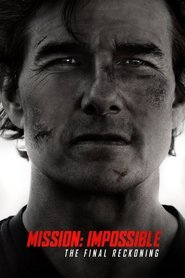 Ethan Hunt and the IMF team...
Ethan Hunt and the IMF team...Mission: Impossible - The Final Reckoning 2025
Ethan Hunt and the IMF team continue their search for the terrifying AI known as the Entity — which has infiltrated intelligence networks all over the globe — with the world's governments and a mysterious ghost from Ethan's past on their trail. Joined by new allies and armed with the means to shut the Entity down for good, Hunt is in a race against time to prevent the world as we know it from changing forever.
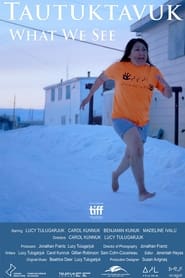 After experiencing a traumatic event in...
After experiencing a traumatic event in...What We See 2023
After experiencing a traumatic event in Igloolik (an Inuit hamlet in Foxe Basin, Qikiqtaaluk Region in Nunavut), Uyarak leaves her community and family in Nunavut to live in Montréal. When Covid-19 lockdowns close off the Canadian Arctic from the rest of the world, Uyarak is further separated from her closest friend, eldest sister, Saqpinak. This extreme situation blurs the lines of both the fictional lives of the sisters, and the non-fiction lives of the film’s directors, Lucy Tulugarjuk and Carol Kunnuk, who play the sisters.
 Surprised at the loss of her...
Surprised at the loss of her...Restless River 2019
Surprised at the loss of her innocence, the young Inuk Elsa draws courage and strength from her rugged land to become a woman as independent as the restless river that cuts across it. She becomes the very young mother of a child whose surprising destiny breaks with the millennial traditions of her ancestors. Navigating the social norms of the colonizers and the reality of her own family situation, the dreariness of a relationship that is not right for her, and the rebellion of her teenage son, Elsa’s path follows the winding course of the indomitable river that accompanies her every turn in life.
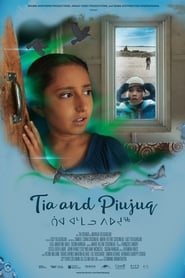 Tia a 10 yearold Syrian refugee living...
Tia a 10 yearold Syrian refugee living...Tia and Piujuq 2018
Tia, a 10 year-old Syrian refugee living in Montreal, finds a magic portal and travels to the Arctic where she befriends an Inuk girl with who she immerses herself in a world of Inuit myth and magic.
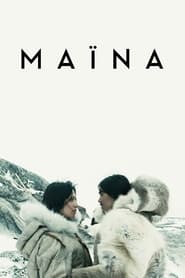 Mana is the daughter of the...
Mana is the daughter of the...Maïna 2013
Maïna is the daughter of the Innu leader Mishtenapuu, who attends a bloody confrontation between his clan and the clan of "Men of the Land of Ice." Following this confrontation, Maïna chooses a mission that will change her life. To fulfill the promise that she has made to her friend Matsii on her deathbed, she embarked on the trail of their enemies to deliver Nipki, a 11 year old boy that the Inuit have captured. But she was also taken as prisoner by Natak, the leader of the Inuit group, and forcibly taken to the Land of Ice.
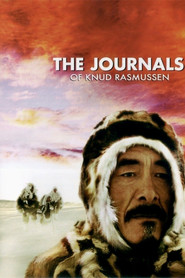 Based on the journal of Knud...
Based on the journal of Knud...The Journals of Knud Rasmussen 2006
Based on the journal of Knud Rasmussen's "Great Sled Journey" of 1922 across arctic Canada. The film is shot from the perspective of the Inuit, showing their traditional beliefs and lifestyle. It tells the story of the last great Inuit shaman and his beautiful and headstrong daughter; the shaman must decide whether to accept the Christian religion that is converting the Inuit across Greenland.
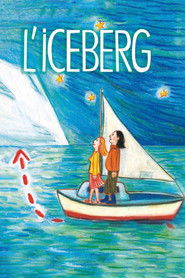 Fiona is the manager of a...
Fiona is the manager of a...Iceberg 2005
Fiona is the manager of a fast-food restaurant. She lives comfortably with her family in the suburbs. In other words, Fiona is happy... until one day she accidentally gets locked into a walk-in fridge. She escapes the next morning, half frozen and barely alive, only to realize that her husband and two children didn't even notice she was missing. But when Fiona develops an obsession for everything cold and icy: snow, polar bears, fridges, icebergs--she drops everything, climbs into a frozen goods delivery truck and leaves home. For a real iceberg.
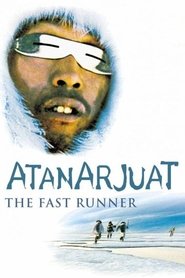 Based on a local legend and...
Based on a local legend and...Atanarjuat: The Fast Runner 2002
Based on a local legend and set in an unknown era, it deals with universal themes of love, possessiveness, family, jealousy and power. Beautifully shot, and acted by Inuit people, it portrays a time when people fought duels by taking turns to punch each other until one was unconscious, made love on the way to the caribou hunt, ate walrus meat and lit their igloos with seal-oil lamps.
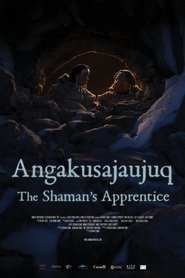 A young shaman must face her...
A young shaman must face her...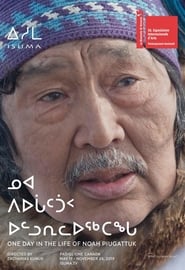 1961 In Kapuivik an Inuit man named...
1961 In Kapuivik an Inuit man named...